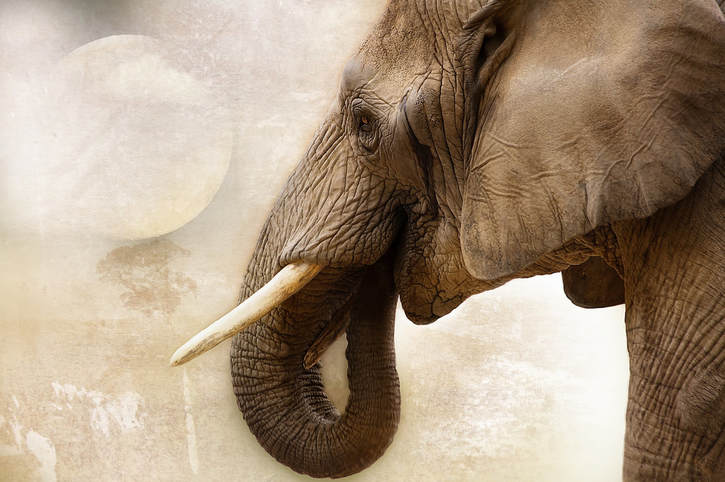And can it be good for them to remember everything?
Well apparently elephants do have great memories. These memories serve them well. In fact it is a big part of their survival instinct.
They have strong memories to help them source food and water. They also remember those who hurt them and if needed learn to avoid hunters or protect themselves in the presence of animals / people who may have hurt them in the past.
So I guess an elephant doesn't forget and also doesn't forgive. Can this same theory of forgiving and forgetting apply to humans?
I certainly wonder if I am like elephant. Not forgetting those that hurt me. Then does this mean I haven't forgiven either?
Learning to forgive those who have hurt us and forget the situation or event seems like a good idea in theory but if a wild animal remembers for survival perhaps humans find the thought of forgiving and forgetting not possible for the same reason.
If we have been hurt by others our primal brain - the limbic brain is going to kick in and we will revert back to the flight or fight scenario. And some studies show that when we consider forgiving the limbic brain fires up again. Negative emotions ignite and the forgiveness process is interrupted. This demonstrates the whole relationship to forgetting and forgiveness to a need for survival.
However forgiveness (at least) is shown to be beneficial for our health.
|
Continuing to hold a grudge and not move past forgiveness can cause a physical response in our body. This is part of the flight or fight response. What we might perceive as protecting us and be responsible for that primal survival response is actually harming us more. When we experience negative emotions like anger, negative thoughts and grudges large amounts of cortisol are released into our body. In the long term cortisol can cause serious side effects in the body such as increasing blood pressure, inhibiting insulin production and producing a cascade of physiological symptoms including infertility, weight gain, and digestive issues.
Therefore learning to forgive actually contributes to a healthier and happier life.
But how is it possible to learn to forgive if our natural response is to revert to the Limbic Brain or survival mode whenever we start thinking about forgiving.
Well this is where mindfulness techniques can help.
Mindfulness has many benefits including helping us perceive situations differently. Mindfulness reduces our stress response. Mindfulness increases neural connections in the pre-frontal cortex therefore giving us the opportunity to think rationally and logically before our emotional brain kicks in. Mindfulness provides an opportunity for us to observe our emotions without reaction.
When we can think clearly and rationalise our emotions and how we feel we are more likely to forgive.
Forgetting about the situation or event that occurred though, that is a different kettle of err umm - elephant?
Sometimes remembering what has occurred can serve the purpose of empowering us to set boundaries so as to prevent becoming a doormat to the other person’s behaviour and actions. While it is good for our health to forgive someone, that doesn’t mean that we allow the same situation to occur again. This is where mindfulness practice can help us transform our perspective of a negative situation and event.
Practicing mindfulness can actually help us to learn the lesson in the negative. Can even help us see the gratitude in the moment? Mindfulness can even empower us not to accept being treated in particular ways. Our self-perception changes through mindfulness practices. It builds our self-confidence in learning to say no to another person’s behaviour towards us. Not forgetting can actually be beneficial.
Mindfulness is a great tool for helping us go through the process of forgiving and not forgetting. The benefits for our physical and mental health are important particularly when we are not elephants and do not need to fight off hunters or other wild animals who would like to eat us. Who knows perhaps if we practice more mindfulness we grow a brain as big as an elephant.



 RSS Feed
RSS Feed